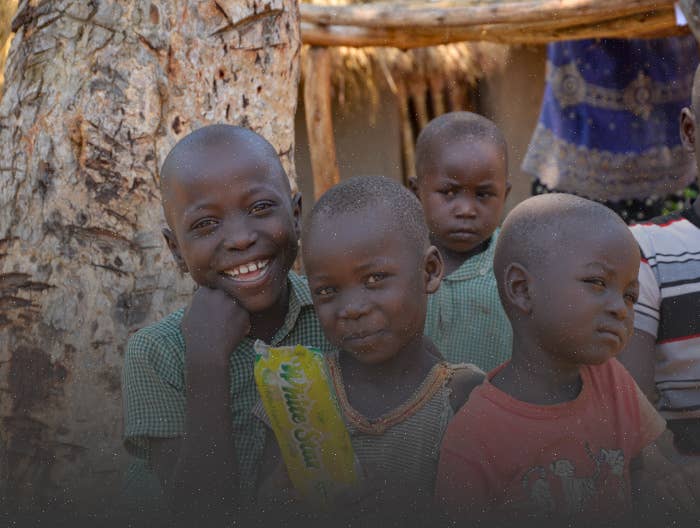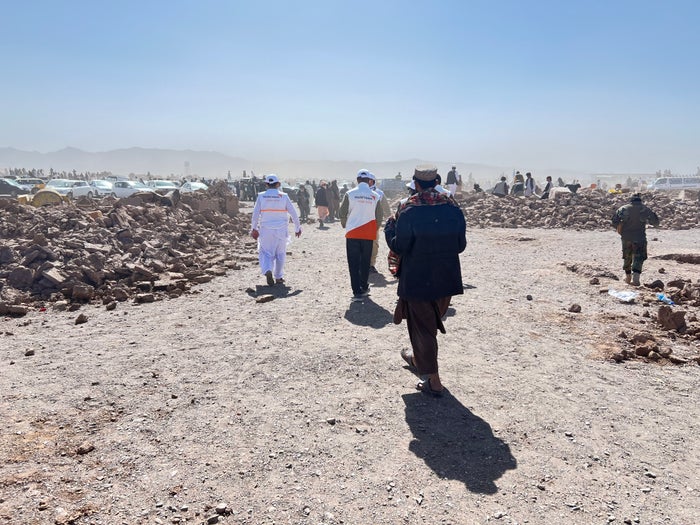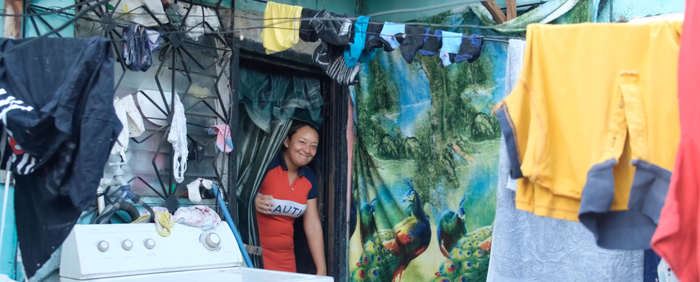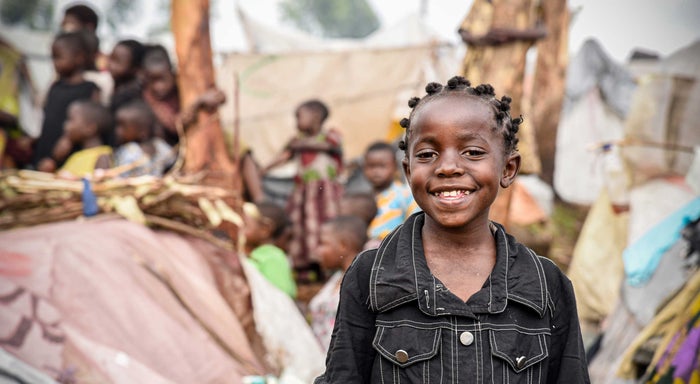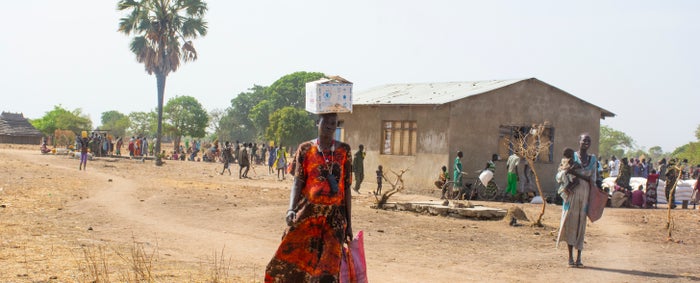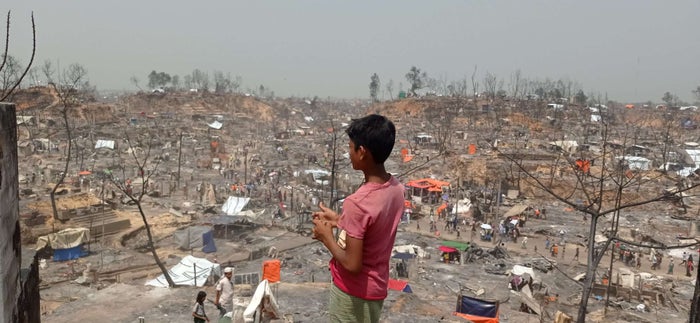“When I heard about the Coronavirus, I felt sick right away because I looked at my children and the situation we were already in and (struggled to) imagine how we would survive it.”
Jessica Juru is a mother of 7. Her family lives as refugees in the Ugandan village of Omugo, where they are locked down during the pandemic.
Story continues after "In Short"
In Short
- Nearly 150,000 South Sudanese children are sheltered in refugee camps in Uganda.
- The COVID-19 pandemic could devastate refugee communities that have no means to isolate and only limited access to health services.
- With Uganda's lockdown to prevent to spread of the virus, refugee families cannot access any food from markets.
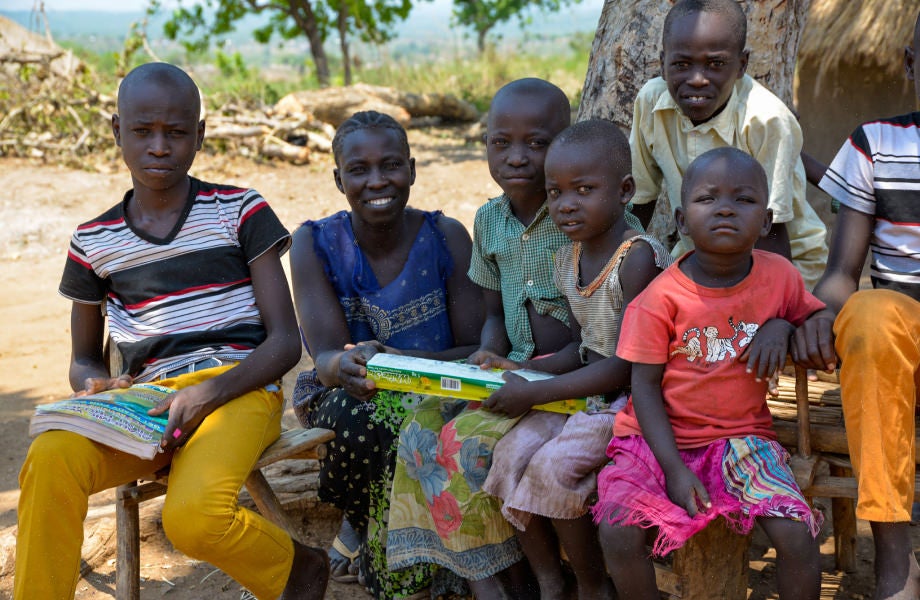
Jessica and her children used ash to keep their hands clean from the virus. Now they can be safe using bars of soap received from World Vision.
World Vision
“We ran from South Sudan to survive," Jessica says, "but with such a disease and all its implications, survival will not be easy, not even here in Uganda.”
Jessica and her children, along with nearly 150,000 other children living in Ugandan refugee camps, left the deadly circumstances of their home country only to face a viral outbreak that now could have unprecedented mortality rates in the very communities they fled to.
As World Vision Program Director Brenda Madrara explains, “the disease might not kill as many children (as adults) from the available statistics but the impact to them is great.”
South Sudanese children are sheltered in refugee camps in Uganda
South Sudanese refugee children are at risk or have no parents to care for them
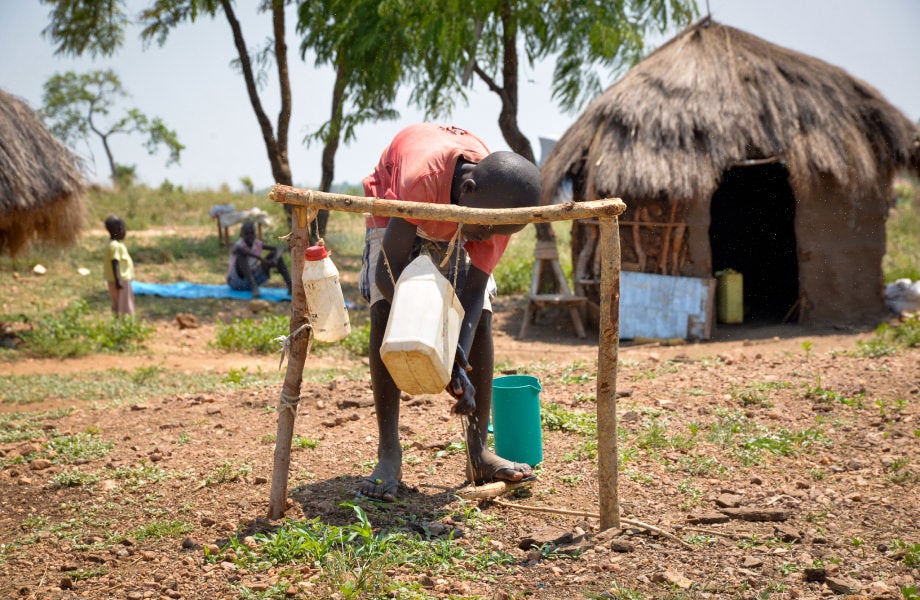
In the refugee village where Jessica’s family lives almost all of the households now have tippy taps and all visitors are required to wash their hands before coming into the home.
World Vision
53,000 South Sudanese refugee children are at risk or have no parents to care for them. Such children rely on foster care but foster families are more reluctant to take in a child when they face food shortages and the threat of infection. Others live with their grandparents, who are at much greater risk for contracting COVID-19. If these guardians died or were hospitalised, thousands of refugee children would lack basic care.
The mandatory closure of refugee-owned businesses and the drop in food rations put mothers like Jessica in a difficult position. Not even her husband could help who would frequently go to South Sudan for work to supplement the family’s food rations and income.
“When they closed the borders because of the Coronavirus, he was still in South Sudan and he cannot come back now. I now have to fend for my children single handedly,” Jessica says.
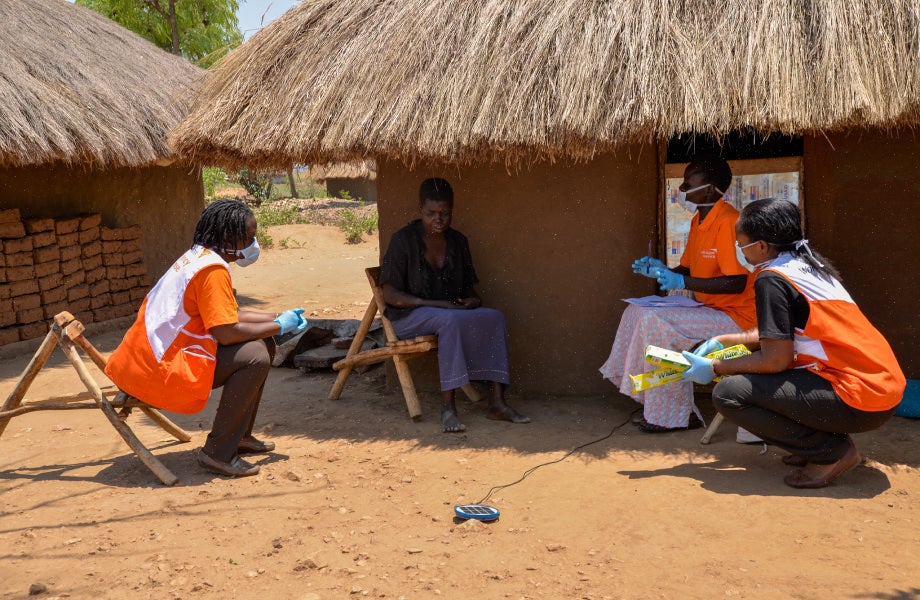
World Vision volunteers and child ambassadors teach the refugee families how to stay safe.
World Vision
World Vision is responding to the needs of families like Jessica’s by providing soap and hand washing facilities. We have also delivered personal protective equipment to health workers in Omugo. Nicholas Tayeebwa, the Assistant Settlement Commandant, reports: “(by) engaging our partner, World Vision, we are making sure that refugees can still access all the services entitled to them including food, water and healthcare. We do all these while observing the set government guidelines on social distancing.”
World Vision staff and volunteers find that hygiene education and updates on COVID-19 are just as important as the resources used to prevent it.
“It is important that the community understands the war we are fighting," Brenda says. "We are working with children ambassadors and child protection committee members who are from the community to disseminate these messages,” she says.
How can I help?
It’s easy to feel helpless in situations like this but rest assured… you, us, everyone, together, can help make life-changing impact. And we are!
Here are three different ways you can be a part of the change.
- 1
Donate
Every gift makes a difference. Our Raw Hope fund helps children living in the world’s most dangerous places.
Donate Now - 2
Sign our Petition
Add your voice to demand a better life for refugee children.
- 3
Share on Social Media
Raising awareness is vital. Help make people aware of the situation and the difference we can make, together.
